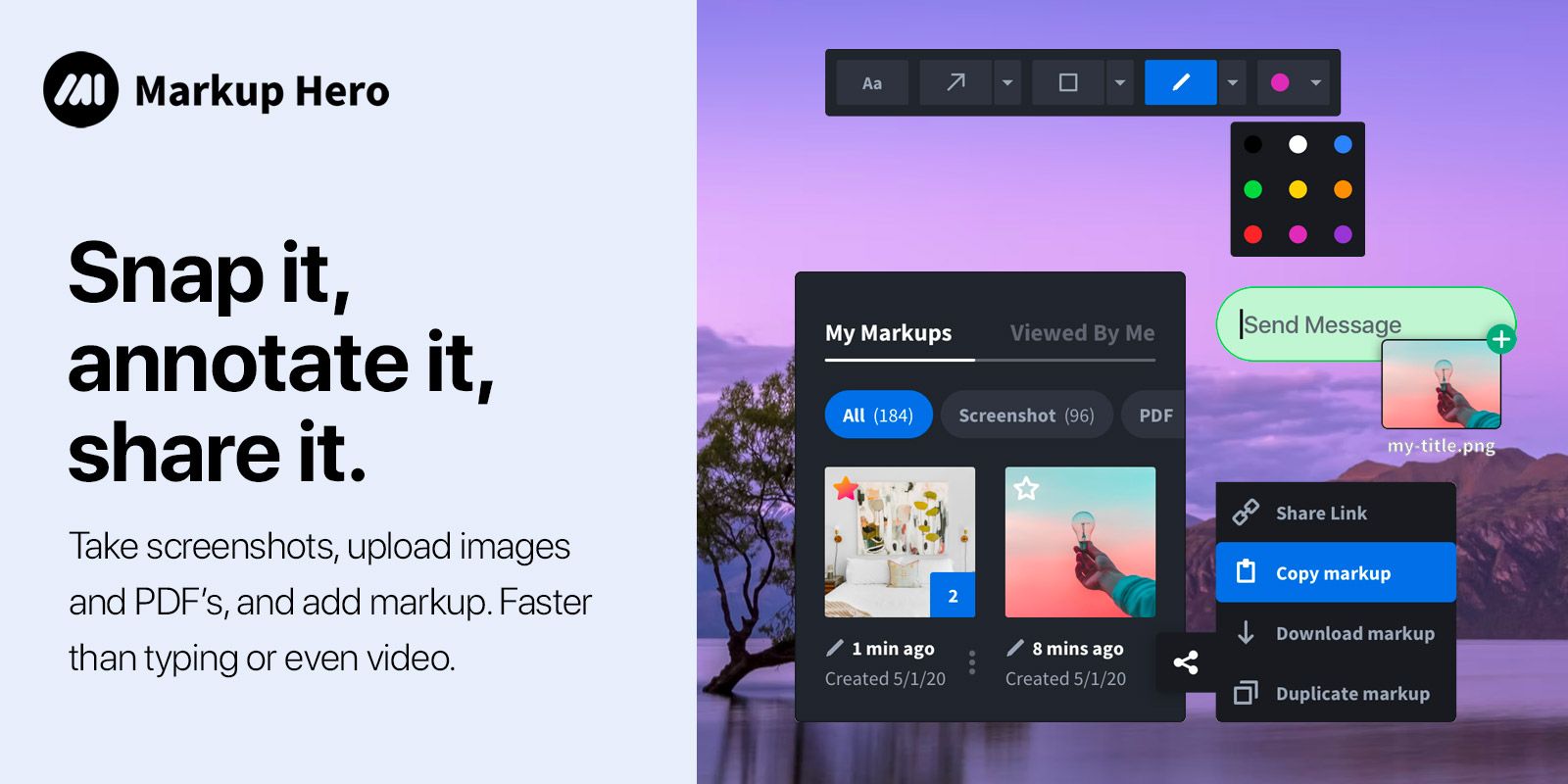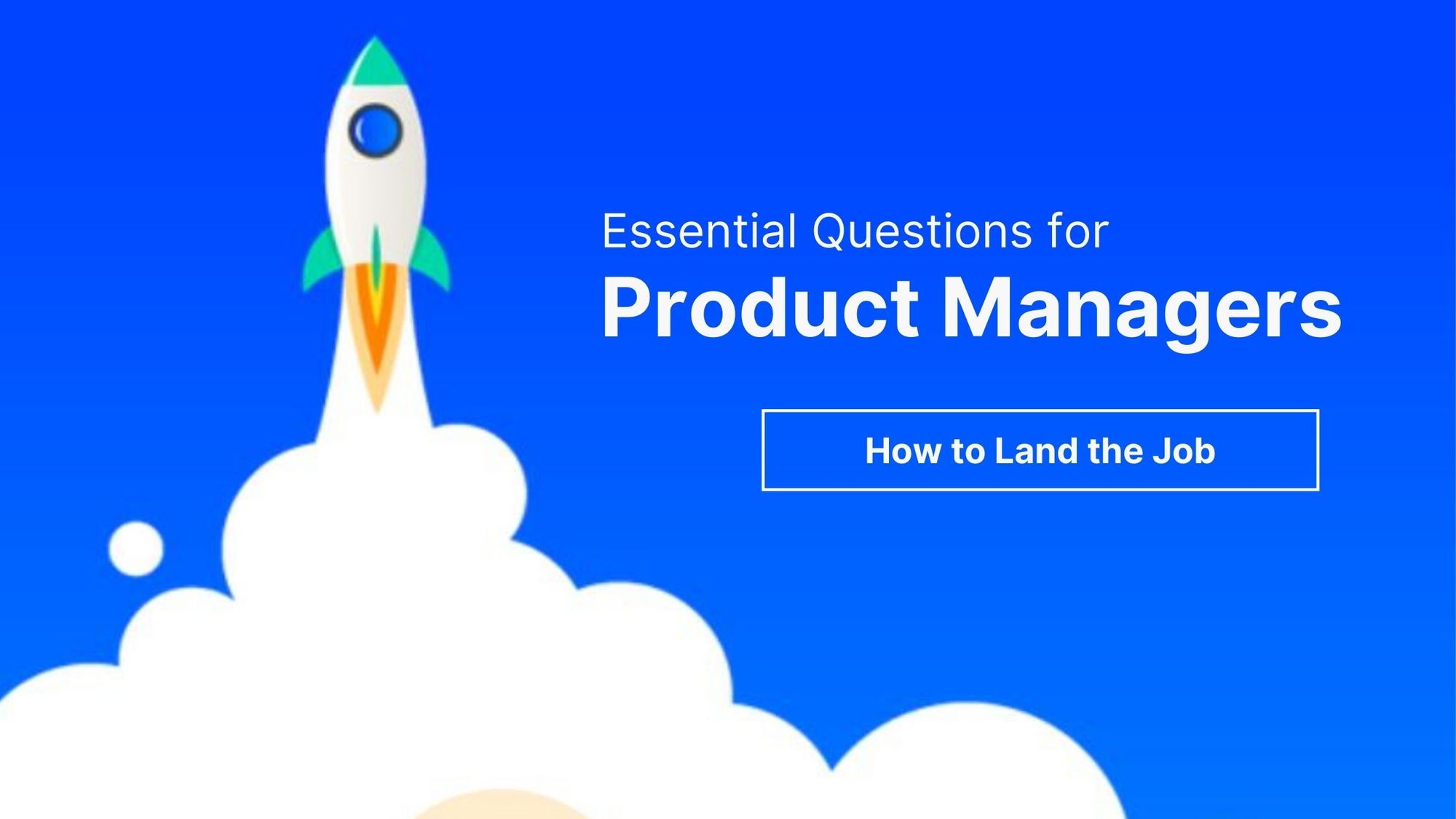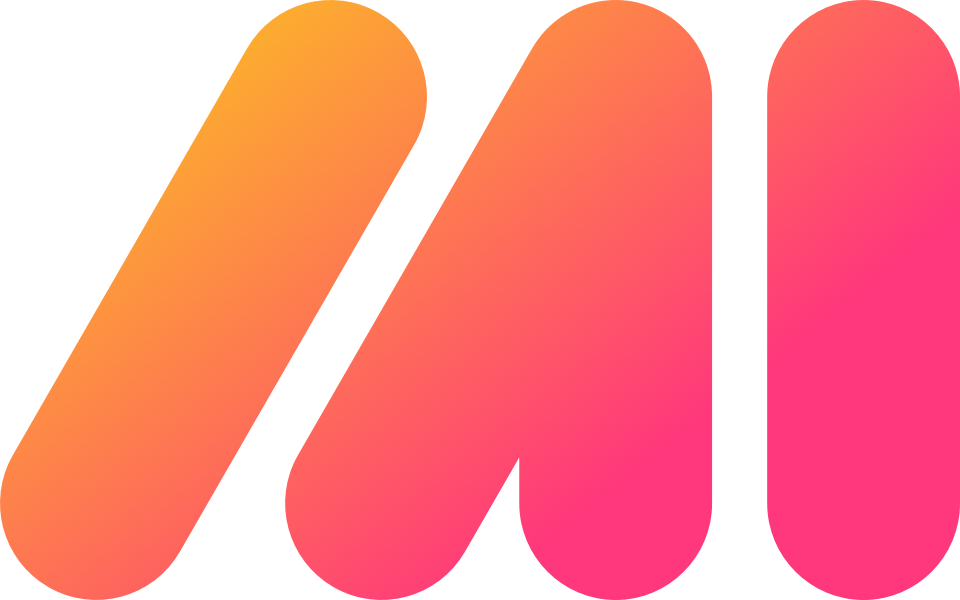Being a product manager is an impactful and fulfilling role in tech. Product managers are the new rockstars these days. Being a product manager is a multi-faceted role – from leading collaboration between teams to evaluating and scoping product features, product managers need a range of skills to do the job well.
If this is the career for you, then you'll need to be prepared for job interviews. This article breaks down common questions you'll get when interviewing and how to prepare for them.
What Questions To Expect?
The goal of the hiring managers during the interview process is to uncover the candidate's internal decision-making methodologies, prioritization techniques, and to reaffirm the technical skills already listed on the resume. Instead of stressing over having a concrete answer for every possible question, try to create a framework around which to structure your answers.
#1 – List the responsibilities of a product manager.
Many hiring managers will want you to explain the responsibilities of a product manager before they get into your skills and qualifications. This is a good way for them to see how you think about the role and if it matches what they're looking for.
Try to give an honest answer because the actual responsibilities of the product manager position could vary drastically from one organization to another. You won't be a fit for every role, but that's ok. You want to join the right company, with the right culture, and the job details that fit you.
By sharing your real thoughts on the matter, you allow the interviewer to determine whether the position they have available is indeed the one you envision it to be.
#2 – Have you identified any past mistakes in your career?
Some interviewers are fond of asking questions about previous mistakes because unprepared candidates are likely to fumble for an answer and sink their chances of being hired. To avoid this outcome, have a couple of situations you are ready to discuss and emphasize the methods you used to handle the issue, the conclusions that arose from the mistake, and what you would do to avoid such problems now.
Remember, everyone fails, and failure is how we learn and improve. Make sure the hiring manager knows that you will learn from mistakes and work toward better outcomes in these cases.
#3 – How have you dealt with scope creep?
Scope creep is a natural outcome of product management. Everyone has good ideas and it is your job to prioritize and manage outcomes against perceived needs.
PRO TIP: Be honest about the reality of scope creep rather than avoidant about it. Being a good product manager is not hiding the truth it's about managing the reality of challenges.
Try to give a specific example of when you experienced this and how you dealt with it. Point out how additional feature requests could negatively impact the expected timeline, the projected budget, or any other risks that they could potentially bring.
In your answer, you can also mention that the requests causing scope creep could instead be included as a new project at a future date.
PRO TIP: Never hesitate to share the tools you use to do the job better. If you haven't tried Markup Hero for screenshots and annotations, now is the time.

#4 – Why are you excited to work as a product manager?
No matter what role a hiring manager is trying to fill, they are going to want someone motivated and passionate. Let them know what keeps you fired up and why you have a personal drive to do the role of a product manager position.
Try to keep your answer relevant and to the point without going on any lengthy tangents. Include specific examples of any aspects of the job that you enjoy in particular.
PRO TIP: Ask yourself what keeps you up at night and what gets you going in the morning (not coffee). These are indicators of passion and this is the fire that a hiring manager is looking to learn about.
#5 – If you have two equally desirable features, how will you choose which one to implement?
This is a universal quandary for product managers. You will never be able to do "everything", at least not all at once. Hiring managers like this question because it enables them to understand your decision-making process.
Good product managers know that "needs" and "pains" from the customer are what truly drive feature development. Choosing the right feature is about solving a customer problem first and foremost, and problems are found in the why.
Let the hiring manager know that you ask "why" to get to the root of the need. Mention whether you value the feature preferred by the customer, the way each one will fit within the limitations of the current budget, whether one will help differentiate the product from its competitors, or if it is going to be easier to accommodate than the other.
#6 – How do you motivate a frustrated or overworked team?
Managing people and processes are a big part of being an effective product manager. This is almost certainly going to be a topic of discussion in an interview. Product managers have to find the right approach to keep team members motivated during a challenging stretch when the stress and frustrations are piling up. This includes optimizing how information moves between cross-functional teams using communication platforms like Slack and or by implementing business process management. If you have dealt with such situations already, describe your actions to mitigate the negative impact on the team's morale.
If you haven't yet had this challenge, be honest, let the hiring manager know that you anticipate this issue and that you will remain calm and patient as you try to uncover what's blocking motivation among your team. You don't have to know the perfect solution to this one, just that you act as a leader to get people back into a place of maximum productivity.
#7 – What part of being a product manager frustrates you?
Everyone, in every role, gets frustrated. That's part of the job. Product managers have a big load on their shoulders so they are even more likely to feel the pressure.
To answer this question, let them know you are human. You do get frustrated. Give them some specific situations that had you feeling stuck if you've experienced this. But focus on how you worked through it. That you didn't give up. And share any techniques you've found that work to get you motivated again.
Product designer Adam Donkin suggests to "get some emotional separation" when you're feeling stuck. Your job isn't your life. So bring some perspective to the situation and let the hiring manager know what sometimes you just need to separate your personal feelings about the job from the functional requirements of the role.
#8 – How did you handle having to reject a team member's suggestion?
Saying no is even more important than saying yes as a product manager. Success is defined in the "right" things, not the "quantity" of things you build. With that in mind, you will undoubtedly have to say no to a feature that someone on your team is pushing hard.
Product management isn't personal, but sometimes people take it personally (refer to #7 above). It's your job to remind your team about that.
Let the hiring manager know that you appreciate the challenge of saying no – whether with customers, team members, engineers, designers, and even company executives.
PRO TIP: The best product managers are NOT "yes men". That means you don't just do whatever the boss wants -- you do what's needed and optimal for the business. A smart hiring manager knows this and will commend you on sticking firm on this point. In reality, if the company is looking for someone to say yes to everything, then trust me, you don't want to work there.
Explain that you're not a "yes man". Instead explain how you systematically evaluate opportunities and have a level of interpersonal intelligence that you leverage to say no when the idea just doesn't fit, now or ever.
#9 – How would you improve a product that you already use on a daily basis?
This is a popular question for hiring managers. They want to know what other tools you like and use regularly. And the interviewer aims to see the natural inclinations of the candidate, so your answer should be based on your values and preferences.
Suggest ways for improving the product's usability, visual appeal, durability, or something else that you have deemed as an existing flaw. The question tries to get you to think critically about a product you may have become attached to and thus subconsciously gloss over its potential deficiencies.

#10 – How do you determine the customer's wants and needs?
Customer development is a crucial component of the product manager's job. This is the process by which you learn the real needs and problems of your customers.
In your answer, demonstrate the methods you would use to connect and gather live feedback from the users and how you turned it into actionable data. Try to mention multiple ways to ascertain the needed information and give examples from your past work where you have had to tackle a similar task.
#11 – Why do you want this job, and how does it fit your overall career path?
This particular question can be encountered in interviews about any position, not just product management roles. We mention it because the hiring managers rely on it as an important indicator of the candidate's long-term plans. Naturally, a person that views the current opportunity as an essential stage in their career growth and a place to demonstrate their abilities can be chosen over someone who regards the position as a short-term gig.
This isn't necessarily a deal-breaker. If you don't see the company as a long-term fit for you, let them know that you don't plan on leaving anytime soon. It's ok to say you might not be there forever, but you see the company as a critical part of your long-term career path.
#12 – How do you build consensus for a project or feature?
This is another question that gets at your interpersonal skills and communication skills. The best way to answer it is by providing specific examples in your dealings with the stakeholders, getting the engineers to have a unified vision, making sure that the customers' demands are not neglected, and smoothing any contention points that may arise between all of them.
If you don't have a lot of experience in this area, be upfront. Let them know how you would approach the challenge and that you'd love to learn more about best practices. Companies love employees who want to learn.
#13 – What is your preferred method of communicating your product strategy?
The goal of this question is to showcase your approach to engaging others in your plan. Moreover, this question gives hiring managers a sense of how they might interact with existing team members.
Describe the methods and tools you would normally use, mention any consensus-building techniques you might employ, and how you back your decision up with concrete data.
#14 – How do you monitor the product's performance and success?
If you get this question, use the opportunity to highlight examples where you built something that customers loved. Make sure to define the relevant KPIs (key performance indicators) that you regularly track. Also, include the analytics tools, research strategies, and other methods you might employ. Dedicate a portion of the answer to point out your adaptability and propensity for making data-driven decisions.
#15 – What technical skills do you possess that set you apart from other product managers?
While different companies may value different technical skills, it is never a bad idea to have a go-to list of skills you possess. Not all product managers know how to program, but if you do, include the languages and platforms you know. Feel free to shift the question a bit and talk about technical skills but also interpersonal skills and strategic tactics you excel at.
Avoid any deep dives into technicalities and stick to simple yet accurate explanations of the chosen skills. Point out the potential value that they might bring to the product manager's role.
#16 – What are the key differences between a project manager and a product manager?
This is a much-convoluted topic, even by product and project managers themselves. The truth is, not everyone agrees where the line between the two is drawn. Rather than try to have the perfect answer to this question, try to have a concrete opinion on the difference between product and project managers.
PRO TIP: Need some help on this one? Read our comprehensive guide on the difference between product and project managers (see below).

The biggest difference to point out is that the product manager is largely responsible for what and why. Whereas the project manager is more focused on the how and when. In other words, point out that the product manager is responsible for what the company creates and product managers are responsible for how it gets done.
#17 – Describe a product that failed to meet expectations and what you would do differently now?
If you've been doing product management for at least a year, you almost certainly can call upon personal experience with this one. In this case, the interviewer is trying to understand how you assess success and failure.
Look at this question as an opportunity to show that you know the reality of building a product – not everything works. But also show that you accept responsibility for the missed targets instead of deflecting them to others. Do not give examples of complete and utter failures. Shift the focus to the moment you realize things are going sideways and the timely measures you introduced in an attempt to steer the project back into its intended course.
#18 – How would you think about offering one of "our" products at a reduced cost?
The question checks if the candidate has familiarized themselves with the company's product set.
PRO TIP: Never go into an interview without researching the products and services of the company you are interviewing with. Hiring managers will almost certainly ask you something about their products so you need to be familiar with what they already do.
In this case, the hiring manager is trying to see how you would approach the challenge of offering something at a lower price. Simply cutting the cost would not work. Instead, think about how you might simplify the feature set. Feel free to ask the interviewer about costs and overhead associated with delivering a particular product set. Knowing this can help you determine where there might pricing elasticity.
This is also a suitable opportunity to showcase your communication and prioritization skills when it comes to product features. Explain how you will demonstrate the value that the customers receive for the price they are paying.
#19 – How would you launch a new product for "us"?
Similar to the last question, here you're being probed to think critically about the specific companies products and services. If you get this question, it's good news, because they are starting to see you as a potential fit in their org.
Be as specific as possible and showcase your teamwork skills, time management, and understanding of the product roadmap. You may wish to structure your answer around scheduling weekly progress reports, increasing the meetings towards the product launch date to eliminate any potential last-minute issues, and acknowledging the input from the team or key stakeholders.
#20 – How do you define good product design?
Product design is highly subjective. Design is different than function in that the former aids the latter. In other words, product design can make a feature deliver value or hinder the customer from seeing the benefit.
Focus your answer on the importance of design. And unless you have a strong opinion or experience with certain design principles, let them see you're flexibility here. There isn't a singular right answer to this question. The goal of the interviewer is to check if the candidate's priorities are compatible with the ones of the company. You can still mention the importance of the product delivering on the promises made to the consumers.
#21 – What challenges do you foresee for "our" sector?
Again, this question tests the candidate's broader knowledge about the market the company operates in. Similar to researching the companies products and services, you should also understand the space customer segments and markets they sell into.
First try to point out some obvious challenges that almost all companies face like competition, customer acquisition, and scalability. Then, if you can, suggest one or two areas that might become a challenge in the future based on your experience.
#22 – How do you stay updated on product management best practices?
You should already be doing this. And considering you're reading this article, you probably already do. Mention at least a couple of reputable information sources like blogs or news sources that help you advance your education in the product management discipline.
But also share some of your favorite information resources, even those that may only tangentially inform your product management skills like marketing, sales, and business for example.
#23 – List some ways in which the product management team supports sales enablement?
Ultimately people need to buy the products and services you create as a product manager. While this isn't the direct responsibility of your role, you do have an impact there.
There are numerous key activities that the product manager can perform to support sales and marketing effectiveness, sales efficiency, customer engagement, and customer interactions. You don't have to mention each one of them on the spot, so share the ones you are more familiar with to demonstrate you have sufficient knowledge on this topic.
PRO TIP: A good product manager looks at the business from a micro and macro level. While their contributions are specific to defining and building products and services, they still keep an eye on the overall growth of the business.
#24 – Do you want to ask me any questions?
Just about every job interview will end with this question. Don't miss this opportunity to demonstrate your excitement about the role, as well as your motivation, natural curiosity, and proactive nature.
Come to the interview with 3 or 4 thoughtful questions for this one. Use this chance to gather insight about the position, the initial challenges you may be facing, and the company as a whole.
Wrapping Up and Getting the Job
You won't be able to anticipate 100% of the questions you get in your product manager interview. But we can just about guarantee you'll get a handful of the questions we've covered, or at least variations of them.
These 24 questions are well-rounded enough to get you prepared for just about anything the interviewer can throw at you. Just remain confident and calm. Take time to answer questions intelligently. You might just surprise yourself by thinking on your feet.
Good luck out there!



